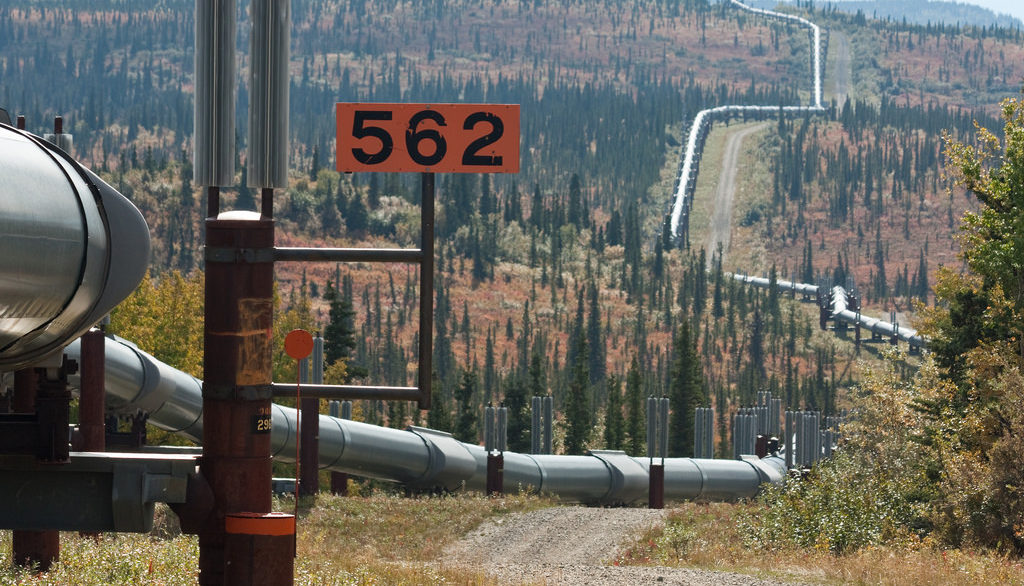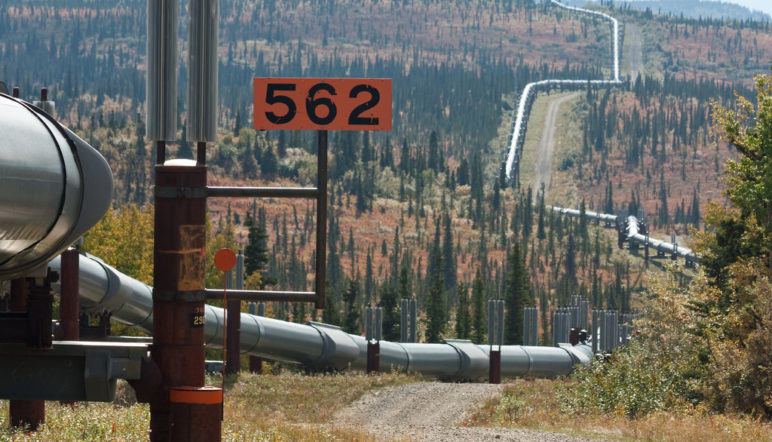The little Columbia River town of Kalama, Washington, may soon be home to the world’s largest methanol refinery. If approved by state regulators, the facility would pipe in huge quantities of natural gas to produce the petrochemical methanol for export to China, where it would be used in plastics manufacturing. A companion project in Tacoma proved to be a lightning rod of controversy, and tensions in Kalama are now coming to a boil. Governor Inslee, formerly an ardent backer of the proposals, has acknowledged that important questions remain unanswered.
Yet the state of Washington may help bankroll this project—quietly betting state employees’ retirement funds on a huge new methanol refinery in Kalama.
WSIB’s big bet on Kalama methanol
The Washington State Investment Board (WSIB), a little-known state agency, manages public investments for the state. The agency oversees public employee pensions and retirement accounts, as well as funds for labor and industry insurance and care coverage, the state’s guaranteed college tuition program, and developmental disability programs. WSIB invests public money in a range of financial instruments, including private equity funds.
The state of Washington may help bankroll this project—quietly betting state employees’ retirement funds on a huge new methanol refinery in Kalama.
In December 2015, WSIB voted to invest with the private equity firm Stonepeak, dedicating $400 million of public money to Stonepeak’s “Infrastructure Fund II.” It was a sizeable bet, so much so that Washington public money constitutes more than 11 percent of the fund. Stonepeak will use the fund— essentially a $3.5 billion pot of money cobbled together from various investors, including WSIB—to finance projects that may generate revenue. And as a series of emails and public documents show, one of the projects that Stonepeak may finance is the Kalama methanol refinery—something that WSIB’s trustees actually knew when they decided to invest the state’s public money.
In fact, Stonepeak has an exclusive option to finance the estimated $1.8 billion cost of building the Kalama methanol refinery using money from Infrastructure Fund II. In return for financing, Stonepeak would acquire an ownership interest (an equity stake) in Northwest Innovation Works, the China-backed company proposing the methanol refinery. Stonepeak may decide within the next year whether to fund the construction.
Poor project review and a potential conflict of interest
Stonepeak considers Washington an important business partner. Emails between WSIB and Stonepeak staff (here, here, and here), unearthed by Columbia Riverkeeper, a water protection organization, suggest that Washington has considerable influence over Stonepeak’s investment decisions. What’s more, the investments create at least the appearance of a conflict of interest: the very state employees charged with the project’s oversight have a financial stake in its development and success because their retirement funds could be invested in the project.
It is also concerning that the state has twice declined to hold the methanol proposal to the type of rigorous review standards that are common for similar energy projects. First, the Washington Department of Ecology decided not to prepare the project’s Environmental Impact Statement, giving over review to the local Port, which itself stands to make millions from methanol export. Second, the Washington Energy Facility Site Evaluation Council, the agency charged with reviewing large-scale energy developments, opted not to examine the proposal. And in the coming months, Ecology will decide whether to give the project a certification required under Section 401 of the Clean Water Act.
A gamble for public employee’s retirement funds
Apart from potential conflicts of interest, there are growing reasons to worry that the Kalama project may be a risky investment of public money. After spiking to record highs in early 2014, methanol prices in Asia collapsed, falling by more than 50 percent over the next two years. It’s true that prices for North American natural gas, the main ingredient in methanol, have declined, which might theoretically make production more profitable. But natural gas prices in Asia have declined even more. And as the price difference between the two regions has shrunk from roughly $11 to $4 (per million BTUs of natural gas), it is no longer clear whether Northwest production can compete with methanol production planned in China. (For more on the economics of producing methanol in the Northwest for consumption in China, see two analyses by Sightline: here and here.) At the very least, falling prices mean that the Kalama project is facing much stiffer headwinds than when it was first proposed in December 2013.
More broadly, it is concerning that Washington may quietly help fund facilities that are bitterly opposed by citizens on whose behalf WSIB is investing. And the dynamic is not new. In 2014, Sightline documented that WSIB had invested billions of dollars in private equity funds focused on fossil fuel investments. Many of those investments were directly linked to energy projects in the Northwest, including plans to barge coal on the Columbia River and a Bakken oil-train loading facility.
Responsibility for WSIB’s investment decisions ultimately resides with the nine voting members of the board, including the State Treasurer. Some investments, like the Kalama methanol project, seem directly at odds with Washington’s core values of environmental protection and climate leadership. At a time when the Northwest is choosing whether to become a carbon pollution export hub of global consequence or a thin green line of climate protection, how Washington invests public money says a great deal about its priorities.
Editor’s note, 12/16/16: an earlier version of this article misstated the degree of responsibility attributable to the State Treasurer. Legislation passed in 1992 transferred responsibility from the Treasurer to the WSIB itself, of which the Treasurer is but one of nine voting board members.
Check out our infographic to learn more about Kalama's proposed methanol refinery.












Vicki Cain
Washington residents better get mad soon and put a stop to this. It would be an environmental calamity waiting to happen. Kalama, sitting beside the beautiful Columbia River, could fowl it for generations to come and possibly end the salmon runs forever. I live in Oregon. So my state stands to be harmed, too. I also know it is a travesty to use working and retired residents retirement fund. Have these people no decency! Stop this now!
******
Are you serious. Retirement, savings, taxes- the people pay for this without having a say in anything on what our money is being spent on.
How would that make you feel if they kept your taxes, kept your retirement, took your savings out of your account to pay for the dumb stuff like this? I know I would be so disappointed.
Christina Mittelstaedt
I’m a retired Washington state employee and have PERS 1 retirement benefits and I do not like that any of my retirement funds are involved in this travesty!
Joan Conger
To whom should we write?
Don Steinke
Write to Cowlitz County Commissioners. I’m writing to the Ridgefield City Council encouraging them to show up at the January 4 hearing.
Steve Erickson
Address
Washington State Investment Board
2100 Evergreen Park Drive SW
P.O. Box 40916
Olympia, Washington 98504-0916
Directions and Map
Main Phone & Email
(360) 956-4600
recep@sib.wa.gov
—————
Write
Governor Jay Inslee
Office of the Governor
PO Box 40002
Olympia, WA 98504-0002
Call
360-902-4111
TTY/TDD call 711 or 1-800-833-6388.
——————-
And CC your state representative and senator
Don Steinke
Great job Sightline!.
SW Clean Air Agency doesn’t regulate pipeline leaks. In the links below are videos of a recent natural gas pipeline leak in Franklinsville New York. According to the story, the leak was first reported a year ago and the pipeline company didn’t think it was urgent.
http://www.wkbw.com/news/gas-pipeline-repaired-after-year-of-leaking
http://www.oleantimesherald.com/news/youtube-video-of-pipeline-gas-leak-gets-attention/article_32e630bc-b917-11e6-b905-638ab11952ea.html
Wells
Trump’s picks for cabinet and staff foretell an ominous agenda. Reckless former Generals, fossil fuel executives and republican toadies have OIL WAR on their mind. Spending on infrastructure will be toward pipelines, export terminals, railroads, BNSF in particular, coal mining, oil wells, fracking. Globalization is most dependent on fossil fuels, so we must expect some version of the TPP to be enacted, complete with extra-judicial corporate bodies able to rule over national interests.
So here’s what I’m thinking could be seen as strategy: STATES RIGHTS. If our Federal Government won’t be tempered by a repukelican Congress, States could install roadblocks. In the Pacific NW, for instance, Democrat Governor Jay Inslee won reelection over Seattle Port Director republican Bill Bryant, a real upset in coal/oil/gas interests plans. Calling for the battle to be taken to the States, should win moderate republican support, especially after Trump is finally viewed as the back-stabbing traitor he really is. This battle over State’s Rights could also leverage support between States, say if one State has an advantage over some federal ruling, that State could strengthen other States in their fights to leave the 20th Century behind.
Wells
One more comment: The Port of Longview is considering coal export. However, Longview could plan for container, grain export and automobile shipment instead. The proposed West Hayden Island Oregon terminal was always a non-starter because the sharp 90 degree rail spurs to an oval track operation would tie up the BNSF bridge to all railway companies and Amtrak. Predictably frequent derailment would shut the crossing down. This inconvenient truth meant little to Port of Portland director Bill Wyatt nor to most other Port directors who’ve been divvying up the projected profits in the same fashion that oil companies divvied up Iraqi oil reserves before we as a nation decided that resource was worth declaring war to acquire.
Anyway, Longview is one Washington port that could make an investment and do more good than harm. I figure Longview could host Panamax class vessels, or coal, but you know how oil company executives really feel about poisoning the environment: the DAPL was located in the Owahe reservoir ‘intentionally’ to poison that water supply.
Mike
If this is public land the the people of wa should get a piece of the action…
Mark Raymond
I have questions in reguards to pipelines. I currently live in the northcentral part of Washington State (Methow Valley) I have concerns that over the last 3 years,the area has endured numerous forest fires. Is the Forest Service using the excuse of prescribed burns as a means for clearing the route for this pipeline via Washington Pass to Tacoma or Bellingham?
Eric de Place
Mark, there’s a lot of stuff I worry about, but that’s not one of them. There are no viable cross-Cascades pipelines in the works.